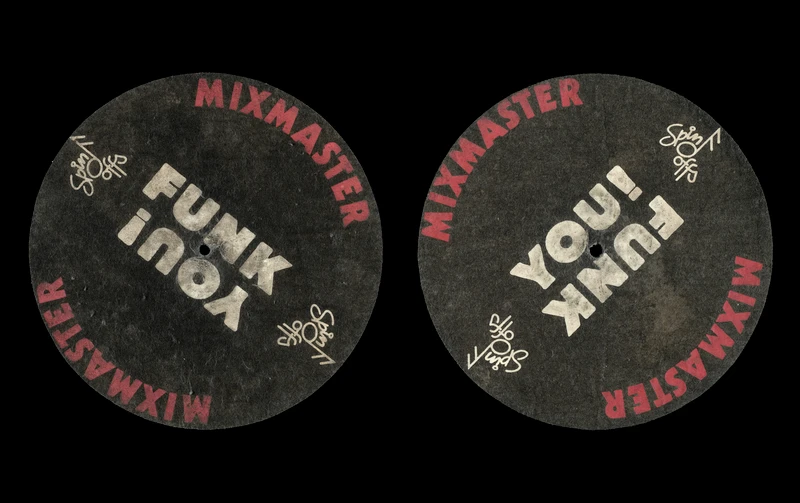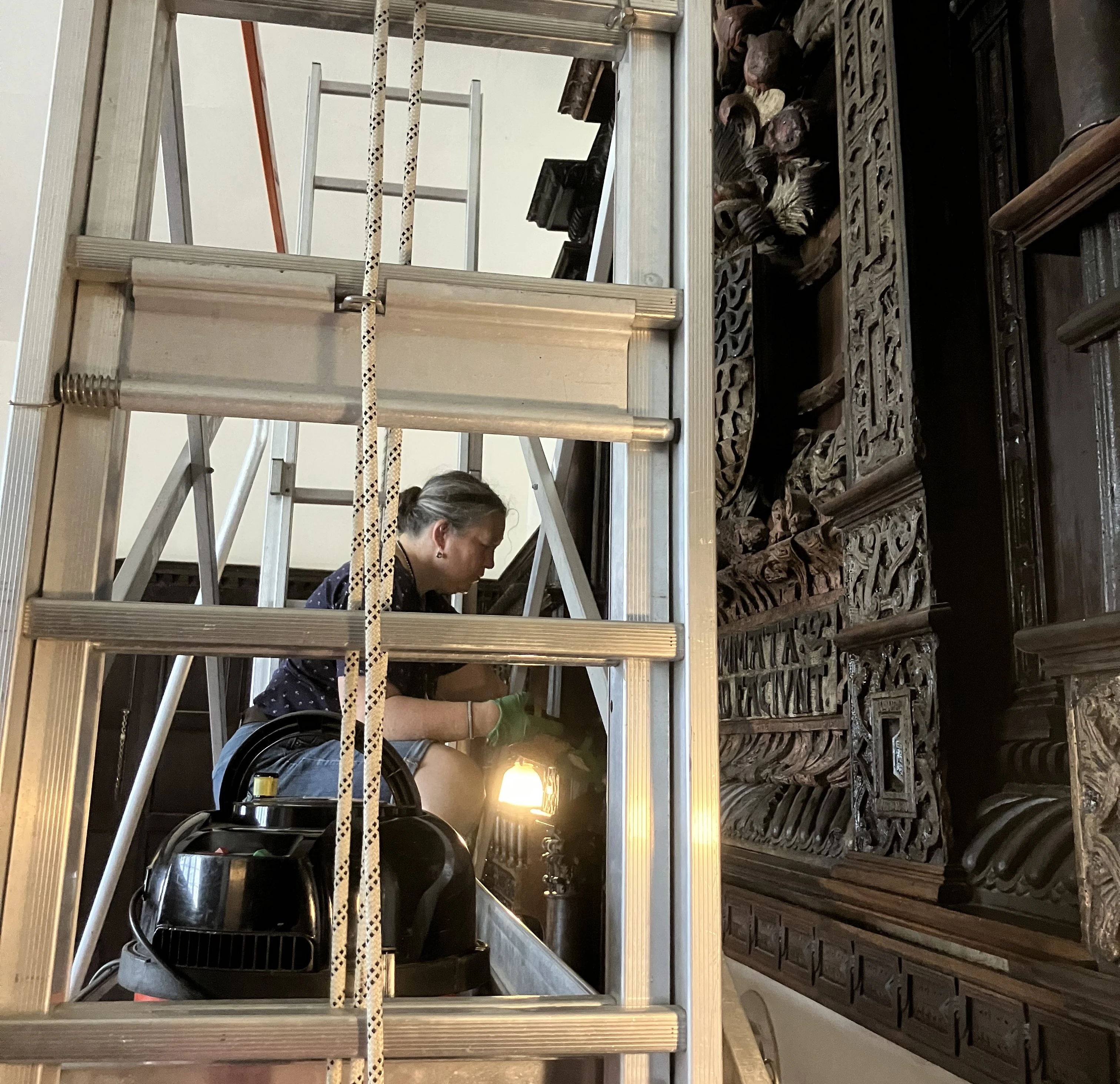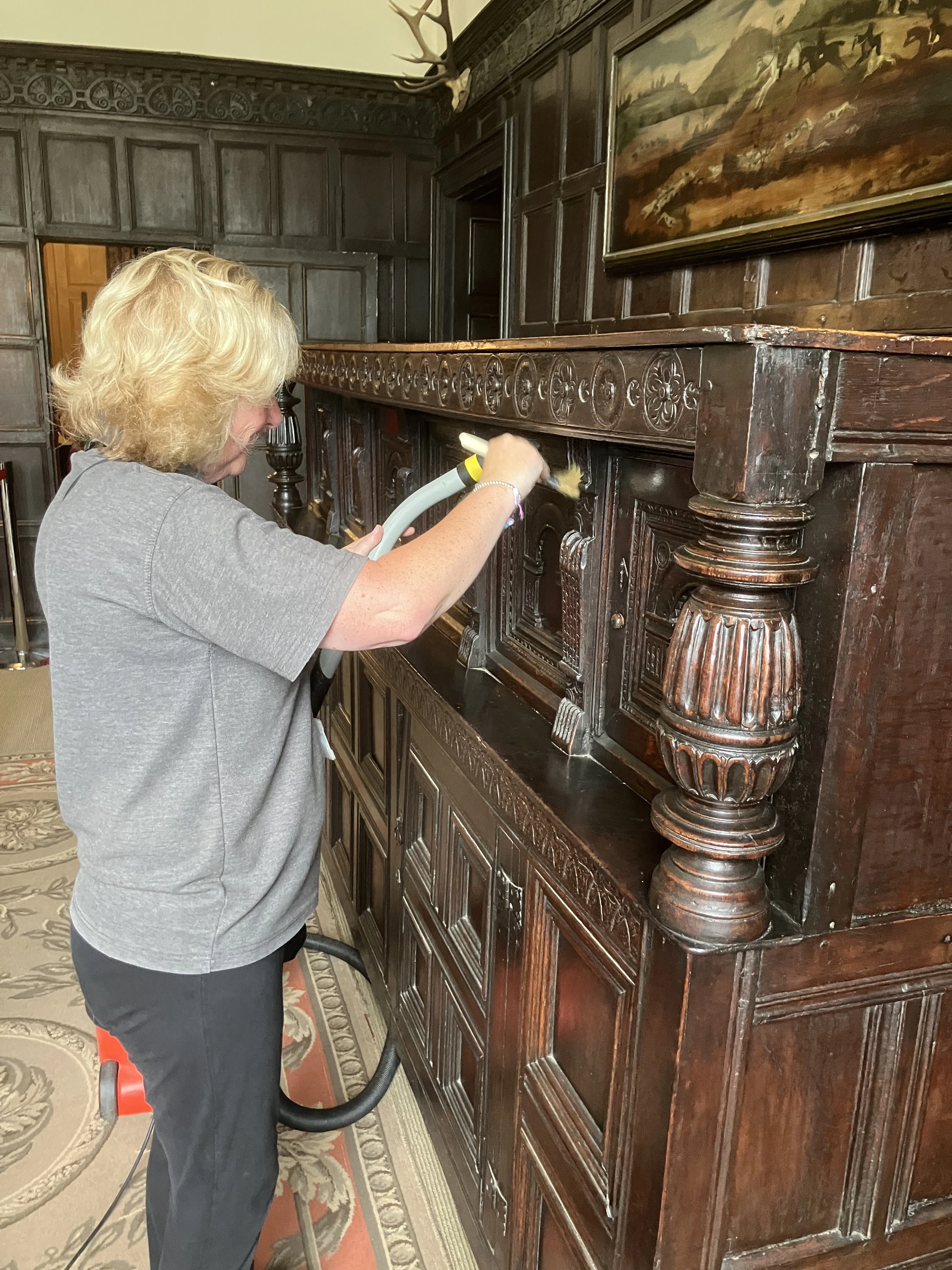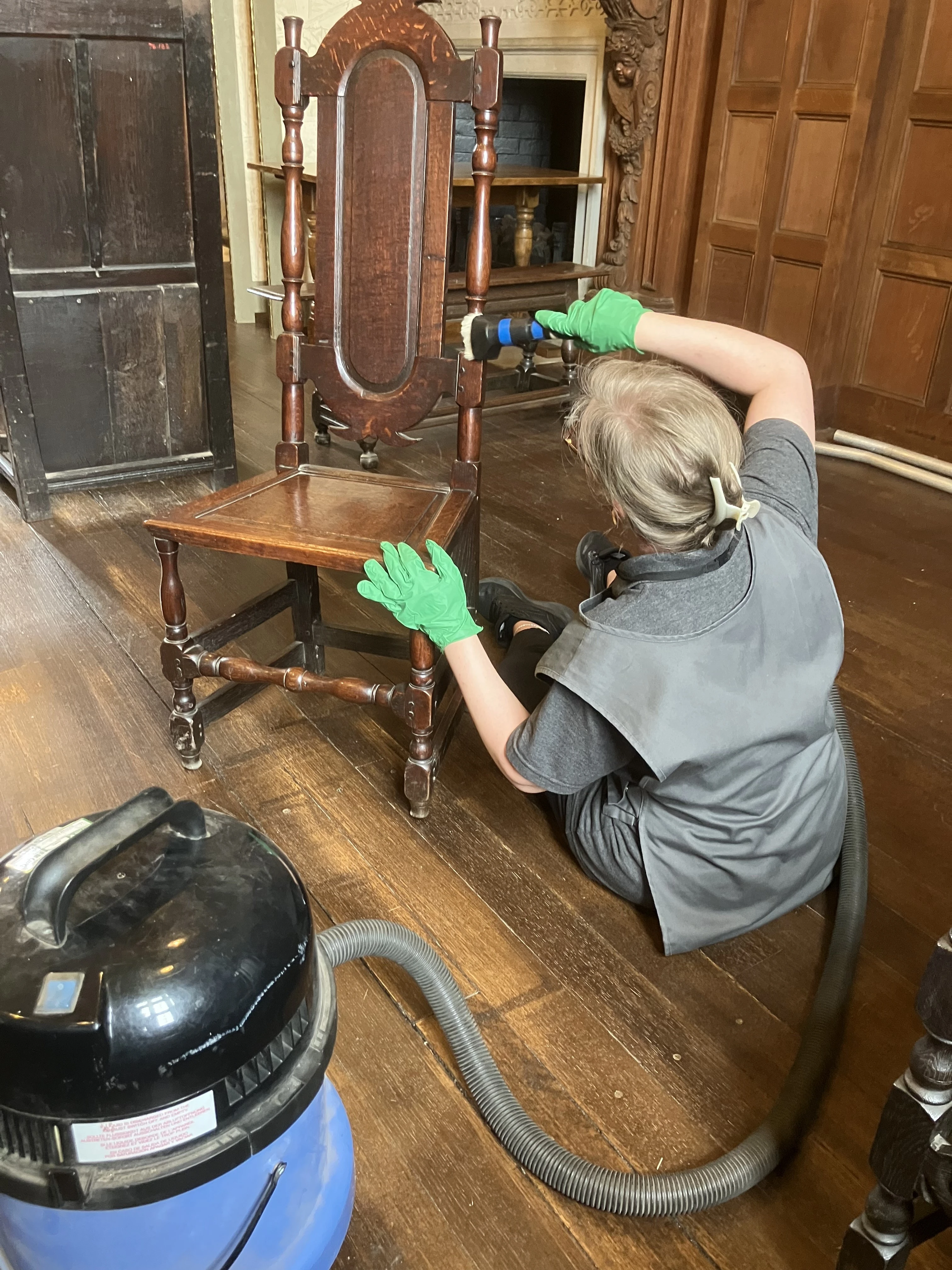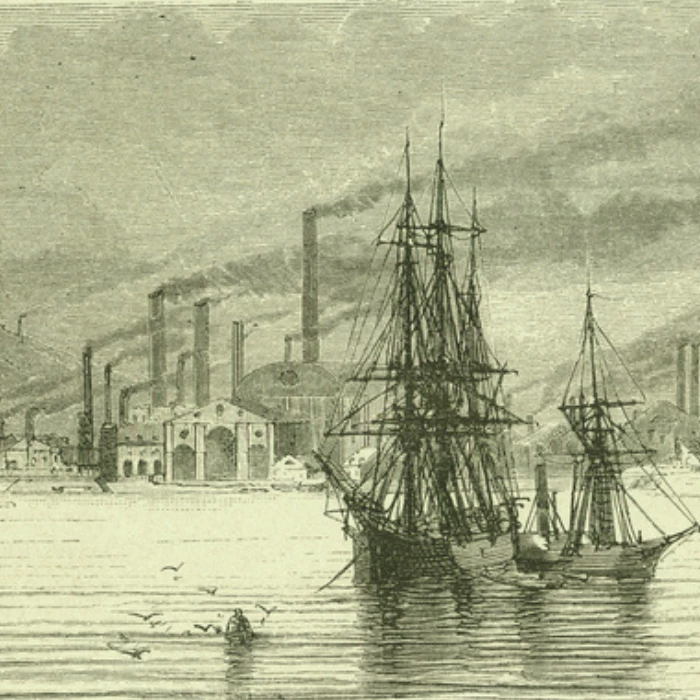Museum Voices: Siân Iles – Senior Curator Collection Development: Medieval
24 July 2025
Siân Iles behind the scenes in our medieval collections storeroom
Hi Siân, tell us a bit about yourself and your role at Amgueddfa Cymru.
I grew up in Cardiff and trips to the Museum to view the archaeology displays at Cathays Park are a happy childhood memory for me. I was so excited to begin working at the Museum in 2008 when I joined as curatorial assistant of the medieval archaeology collections. I am now the Senior Curator responsible for this collection, which covers the period c. AD 500–1500. Prior to that I worked in an archaeology museum in Southampton, which was a wonderful experience working with material from many time periods. At Amgueddfa Cymru I love being part of a team of passionate and knowledgeable colleagues who all work hard to care for the many different aspects of the archaeology collections at Amgueddfa Cymru.
What does the responsibility of looking after our medieval collections entail on a day-to-day basis?
The role is a really varied one, which is a big part of what I love about my job! Some of my day-to-day tasks include the accessioning of archaeological materials, writing treasure and other specialist reports, answering enquiries from the public and facilitating volunteering projects focussing on our medieval archaeological collections. I also enjoy working on large projects including exhibitions.
Tell us a little about the objects and stories you’ve come across. Is there a particular object with a story that has stuck with you?
The joined tile from Neath Abbey, made from three cut pieces forming a single design.
I recently came across an odd discovery whilst working on a volunteer project to repackage and check the documentation of our medieval floor tiles. Amongst a group of tile from Neath Abbey was one was made up of three separate tiles of the same design that had been deliberately cut and stuck together. This isn’t something we would consider doing today but it gave us an interesting perspective into the curatorial practices of the past!
You mentioned our Treasure findings take up some of your time. Can you tell us more about our involvement with Treasure in Wales, and any exciting findings we have recently received?
17th-century vervel, or hawking ring, acquired by us via the Treasure process.
I’m part of a team at Amgueddfa Cymru who help administer the Treasure process in Wales. We offer advice to finders, coroners, local museums, and other interested parties on items of potential Treasure found in Wales. A large part of my treasure role is to research and write specialist reports for the medieval and post-medieval treasure cases, making recommendations to coroners who decide on whether an object or collections qualifies as Treasure.
Looking at all aspects, what do you wish our visitors knew about the work you do behind the scenes?
That the care we provide to the collections is active and continual. A key responsibility of the role of curator is provide a balance between providing access to collections with providing continued care to preserve them for future generations.
And finally, what’s your favourite piece in the Amgueddfa Cymru collection and why?
I find picking a favourite object very hard! I really enjoy working with all materials, but I particularly enjoy working with medieval ceramics – basically fragments of broken pottery and tile! I enjoy the variety of information you can glean from studying it about both the makers and the users. You can see a creative choice or moment (sometimes a fingerprint!) recorded in clay. A single action by a single person representing a single moment in time.
Sherds from 14th-century jugs found at Drybridge Park, Monmouth

